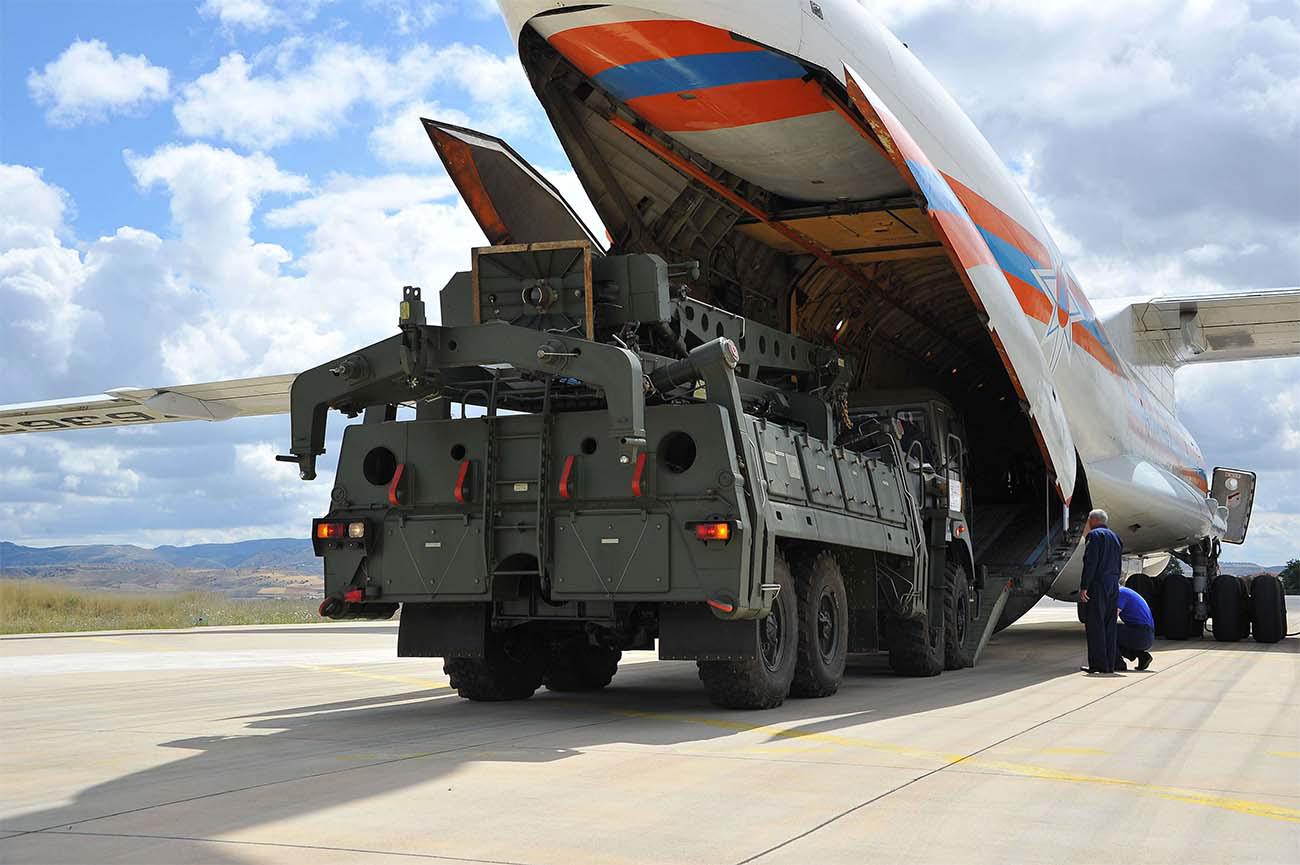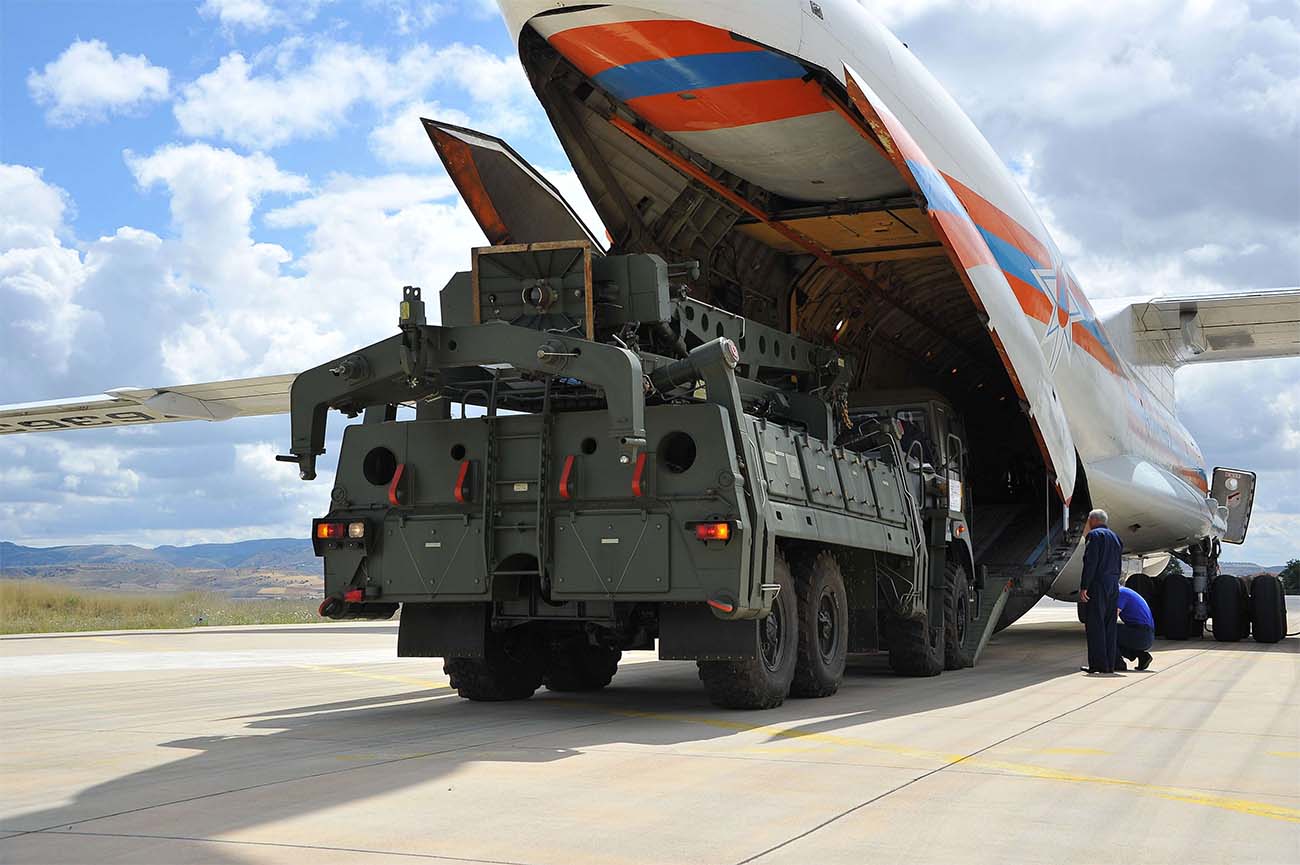What history teaches us about Turkey’s purchase of Russia’s S-400 system
It was April 5, 1946, when the USS Missouri — a major battleship remembered as the setting that formally ended World War II — anchored in Bosporus, Istanbul. It had sailed from New York on a special mission — carrying back the remains of Mehmet Munir Ertegun, ambassador of Turkey, who was a dean of diplomatic corps in Washington.
The visit had a higher symbolism and would come to be remembered as a breaking point. It marked the beginning of a new world — marked with a long Cold War all over it — taking shape and the value the United States placed on Turkey.
Six years later, February 18, 1952, Turkey had officially become a member of NATO. In 1954, a special bilateral treaty gave the United States the right to establish bases and keep military staff on Turkish soil.
In a way, July 12, 2019, could come to be seen as significant as the visit of the American warship 73 years ago.
As the first shipments of the sophisticated Russian S-400 surface-to-air missile defence systems arrived in Murted Air Base in Ankara, the sense of a historic shift hangs in the air.
Turkey’s insistence on acquiring the batteries from a NATO adversary, defying the basic principles of “interoperability” of the alliance, despite open and unified threats from Washington on severe sanctions, raises inevitably the question of whether Ankara is determined in deorbiting from the alliance for good.
Comparisons between USS Missouri and S-400 are not far-fetched. History is filled with such events. Perceived threats from Joseph Stalin’s Russia pushed Turkey to the West then. Now, in one way or another, it is the other way around.
Nobody can argue that the decision-making that led to the Turkish obstinacy to proceed with buying the Russian missile defence systems was based on reflexes.
The underlying reason seems apparent: Since the collapse of the Warsaw Bloc and end of Cold War, Turkey bears a major part of the responsibility for an alienation from NATO. For three decades its discontent has been brewing along with its inability to transform into a democratic state, which failed to develop into a predictable, accountable, rights-based one.
Turkey has insisted on the years-long argument that it was a special case requesting special treatment, refusing to handle its bleeding issue — the Kurds. Coupled with the failed attempts to meet the Copenhagen Criteria and a myopic EU leadership, it has perceived the West as the one discriminating.
When the ruling Justice and Development Party and its leader, Turkish President Recep Tayyip Erdogan, proved unable to unify the society under benevolent political management, the country became a ship adrift.
When its rudder was broken by an attempted coup, Turkey in 2016 turned into a state, if not a rogue one, seeking a port where autocracy was the norm. This is where those ruling in Ankara see the interests of the country and themselves.
The rift that developed between Washington and Ankara has a background that strengthens the thesis of a historic breaking point. Since 1989, it was the — then mighty — Turkish generals who felt their long-hidden frustration with the United States come to the surface. They developed theories that it was the Americans who pushed Turkish Islamists more and more to the centre stage of politics in Turkey.
In their dark illusion, they remained in denial that the profound corruption that rotted the Turkish political class and bureaucracy was the reason the voters sought alternatives. When Erdogan and his party rose to power, allying themselves with the Fethullah Gulen Movement, they were subjected to revenge by trials and a slow-motion demotion from the centre stage. The military, whose main bulk had always American-sceptic features, didn’t blame Islamists for the mistreatments they faced but the Americans.
Paradoxically, after a while, Erdogan — once an adversary of the officers — came to believe the same. When he fell out with Gulen, he faced one challenge after another, with the murky coup attempt in 2016 as the peak point. Erdogan may have been blaming the Gulenists for the act but he believes the Americans are seeking to topple him from power.
The profound disbelief — if not hostility — towards the United States is the force that brought the so-called Eurasianist generals and Erdogan together, approximately since 2014-15. Although this alliance that supports the presidential system may be short-lived, the challenge to NATO and rapprochement with Russia are its products.
Turkey is determined to face the consequences now expected — mandated US sanctions and farther marginalisation within NATO — but the complexities of its objectives will remain: Erdogan and his Eurasianist allies in the administration have different views on Syria, jihadists and the Muslim Brotherhood.
It should be argued that with the S-400 components having landed on Turkish soil, adventurism in Ankara has escalated much more dramatically. Turkey is facing, layer upon layer, a deepening crisis that will shatter its domestic political ground. Let’s see what the opposition can do.
Yavuz Baydar is a senior Turkish columnist, and news analyst. A founding member of the Platform for Independent Journalism (P24) in Istanbul, he has been reporting on Turkey and monitoring media issues since 1980. A European Press Prize Laureate in 2014, he is also the winner of Germany's 'Journalistenpreis' in 2018.
Copyright ©2019 The Arab Weekly







